About
Welcome
Welcome to Tech Lane Ghent Science Park
Tech Lane Ghent Science Park, consisting of two nearby campuses (Campus Ardoyen and Campus Eiland Zwijnaarde) is a vibrant ecosystem of international corporate R&D centers, public research institutes and high-tech growth enterprises, providing a stimulating environment to promote innovation and entrepreneurship.The Park currently hosts 11 university labs, 12 public research centres, 8 industrial pilots & testfacilities and more than 90 knowledge intensive start-ups, academic & corporate R&D centres, covering an integrated campus of 60 ha, housing more than 4,400 high-tech professionals.
The real-estate R&D activities on the science park are operated by Ghent University in a joint venture company with the Flemish investment company PMV and City of Ghent development agency. The real estate activities related to advanced manufacturing are operated by Alinso Group in co-operation with the East Flanders Development agency POM Oost- Vlaanderen. Ghent University ranks among the top 100 academic institutions worldwide. The numerous testing, piloting, incubation and acceleration facilities provide flexible laboratory and office space, as well as easy access to Ghent University's research infrastructure and talent pool comprising over 50,000 students plus 15,000 researchers and associated support staff.
Every year, the Park welcomes more than 10 new high-tech start-ups. The Park has become the natural habitat for the location of spin-offs from VIB, IMEC, VITO and Ghent University of course.
Check out the video about Tech Lane Ghent Science Park!
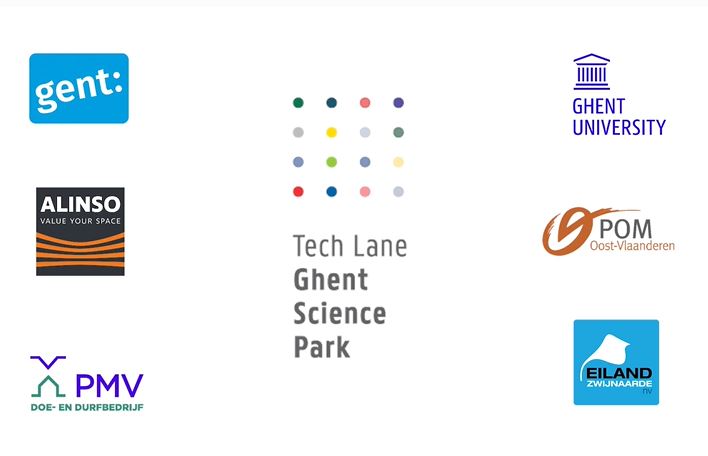
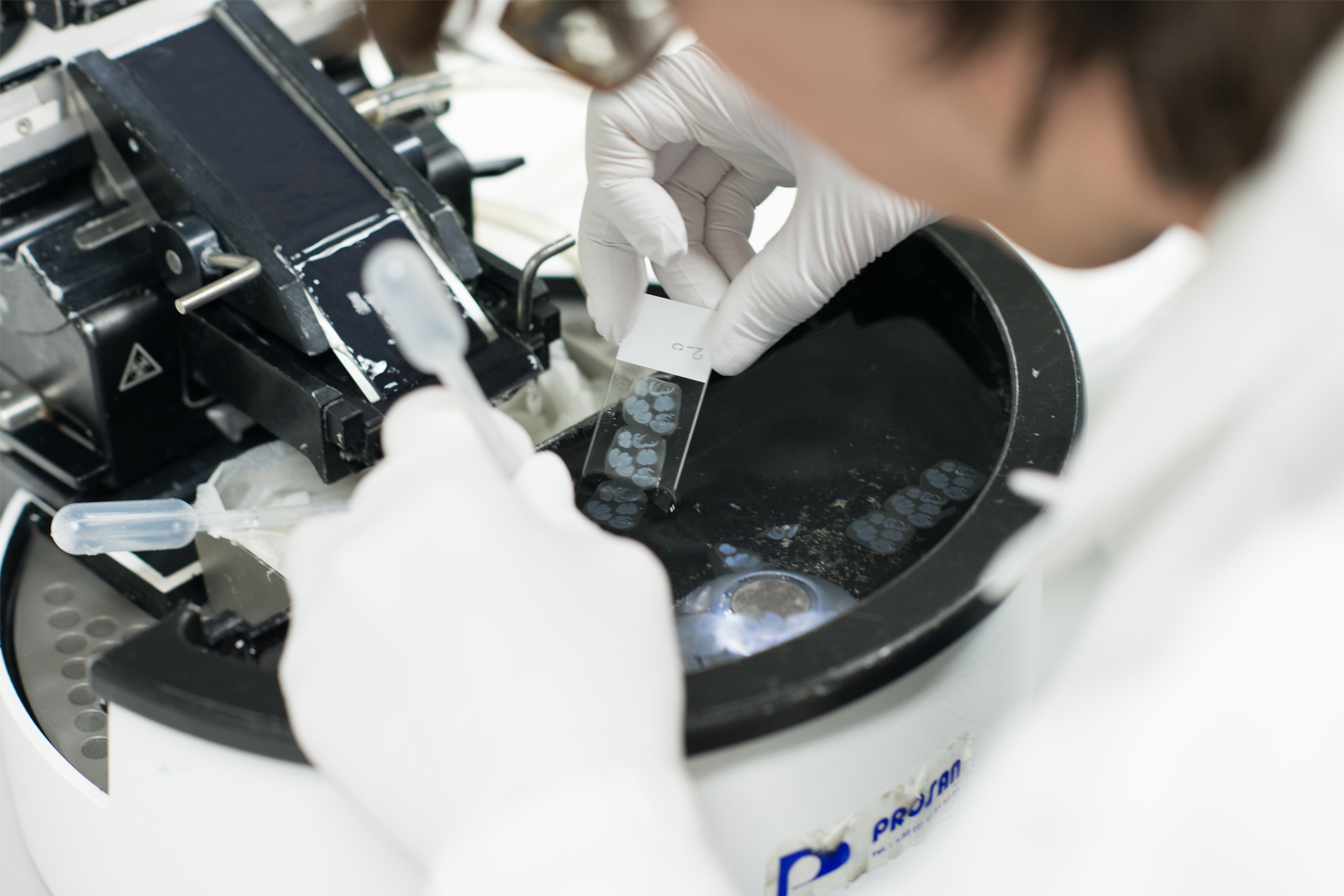
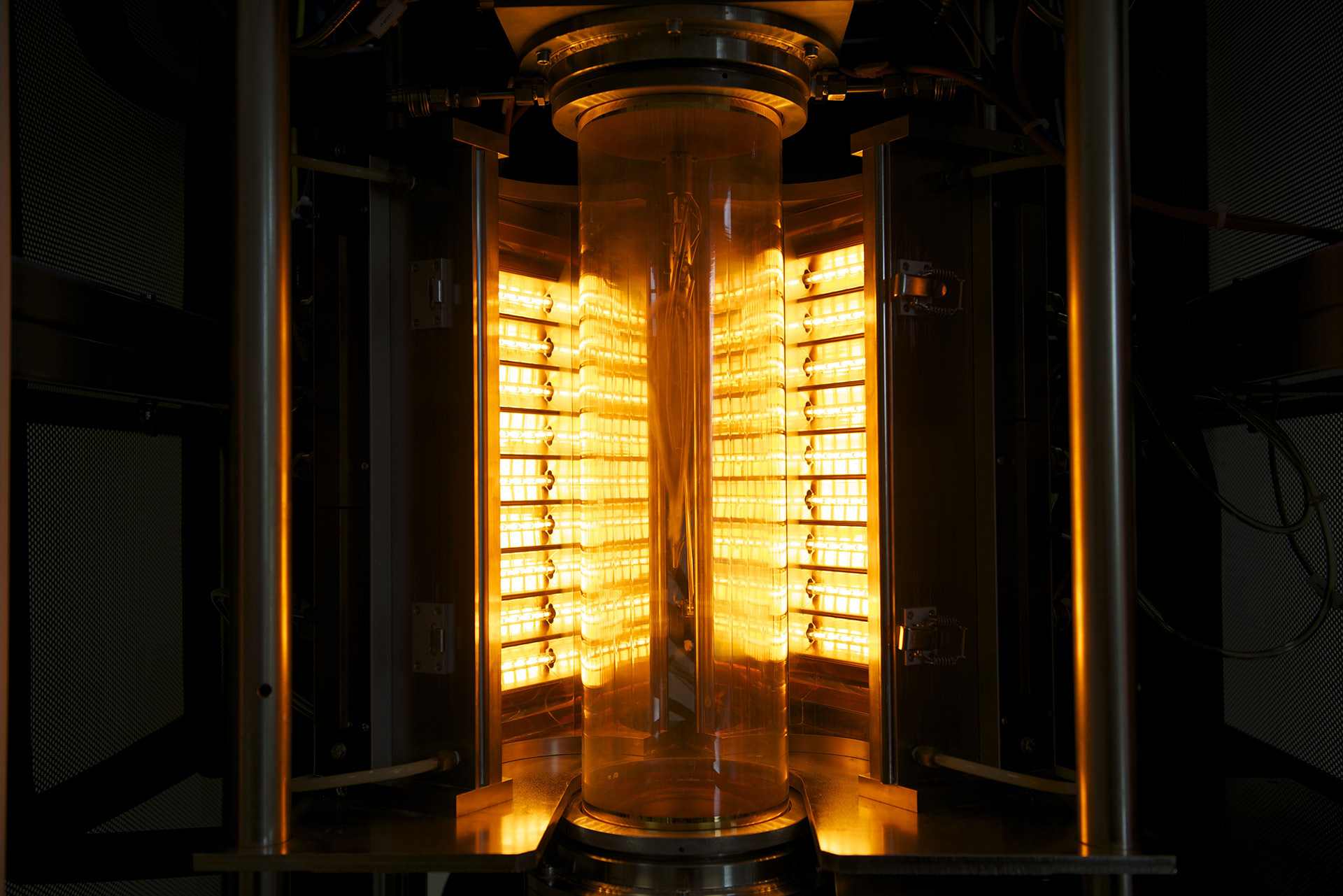
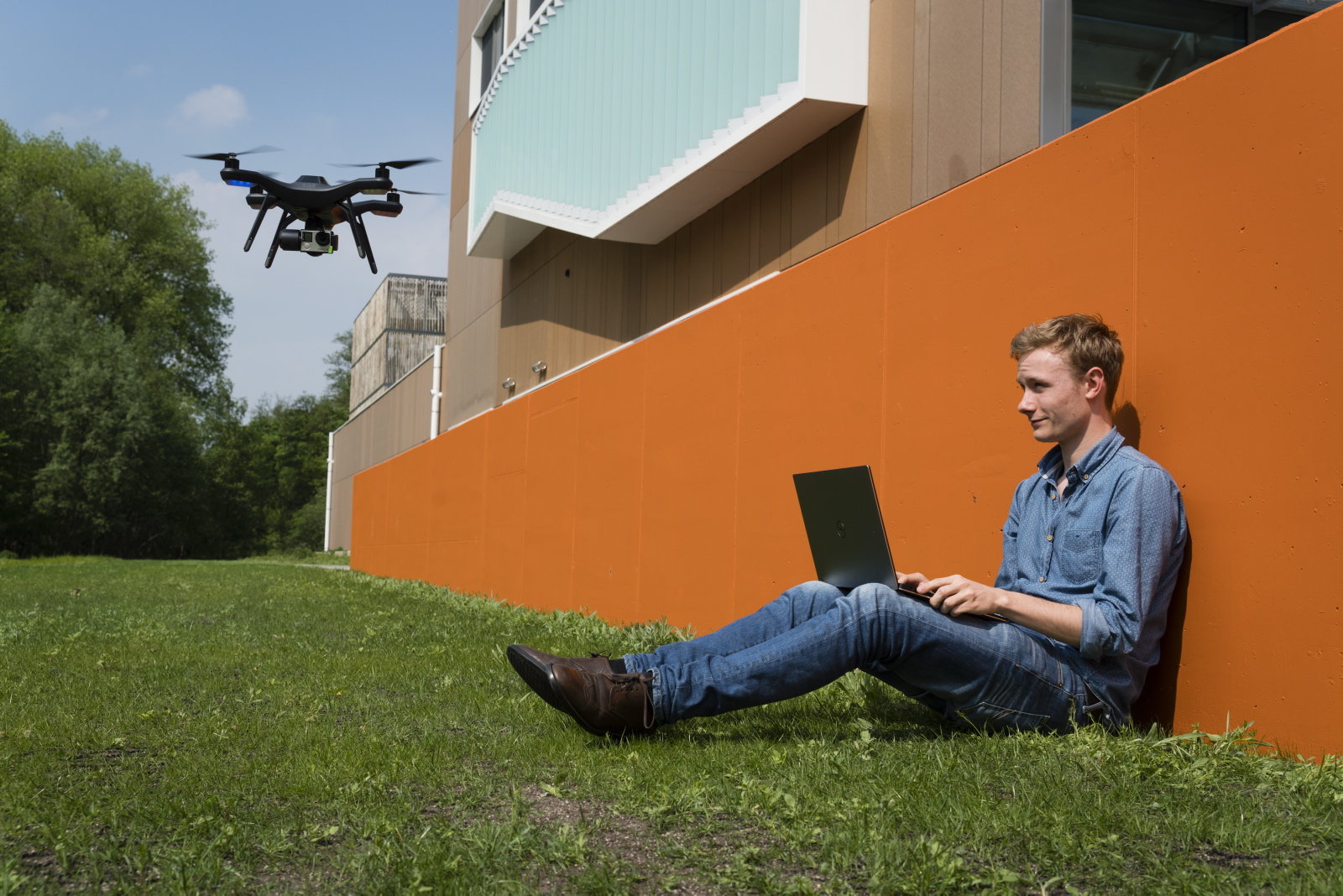
Innovation Clusters
The Deep Tech Innovation Hot Spots at Tech Lane Ghent Science Park are:
Plant Biotech: Plant growth and crop yield; Drought tolerance; Biostimulants; Crispr/Cas; Bio-informatics
Health Tech & Pharma: Small antibody therapeutics; Molecular diagnostics; Integration & pharmaceutical formulation & Processing; Medical devices
Sustainable Chemistry & Industrial Biotech: Chemical reaction/ process modeling and engineering; Steam cracking; Polymer design and engineering; Biocatalysis
Photonics: Photonics for diagnostics; High Speed Communication Technologies; Photonic sensors; Advanced Packaging
Materials Testing: Mechanics of composite structures; Finite Element modelling; Joining, welding, testing of large metal structures
Digital Technologies: Distributed systems; Low power networking; Digital systems performance modelling; Image processing & interpretation; Machine Learning & Big Data; High Speed Electronics
Tenants List
- Agoria
- Amalus Therapeutics
- Animab
- Apcor R&M
- Aphea.Bio
- AVGI
- Avroxa
- Azalea Vision
- Barry Callebaut
- BASF
- BIL-IBS
- BIO INX
- Bio Accelerator
- BioLyo
- BQA
- Centexbel
- Chiyoda Airteck solution - matsumoto
- CKCert
- Climanova
- Clusta
- CMC
- Confo Therapeutics
- Contrel
- CRM Group
- Crodeon
- Cryptobiotix
- Daikin
- Eastman
- Exevir
- Eurofins Amatsigroup
- Obelisc Bio-accelerator
- OCAS
- OneTouch Technology
- Orionis Biosciences
- Thermofisher
- PKS
- Primoris
- ProDigest
- Protealis
- QustomDot
- Riedel Communications
- Sanofi
- Sensnet
- Sentea
- Sirris
- Sofico
- Solvus
- Syngenta
- Techspert
- Those Vegan Cowboys
- TPVision
- UGent
- UGent P3Lab
- UGent TechTransfer
- VIB
- VIB Bio-incubator
- Vlaamse overheid Geotechniek
- Yakult
- Zomagen Biosciences Belgium
Tech Lane Tour
Are you curious about what happens behind the walls of companies and research labs at Tech Lane Ghent Science Park?
Proudly presenting the virtual Tech Lane Tour
- a 360° view of the offices and labs, fun facts, impact stories, and videos.
- a glimpse inside the buildings without entering.
How to use the Tech Lane Tour?
- Find the stickers on the different buildings and scan the QR code.
- Or visit the buildings from your easy chair.
Enjoy the discovery!
Proudly presenting the virtual Tech Lane Tour
- a 360° view of the offices and labs, fun facts, impact stories, and videos.
- a glimpse inside the buildings without entering.
How to use the Tech Lane Tour?
- Find the stickers on the different buildings and scan the QR code.
- Or visit the buildings from your easy chair.
Enjoy the discovery!
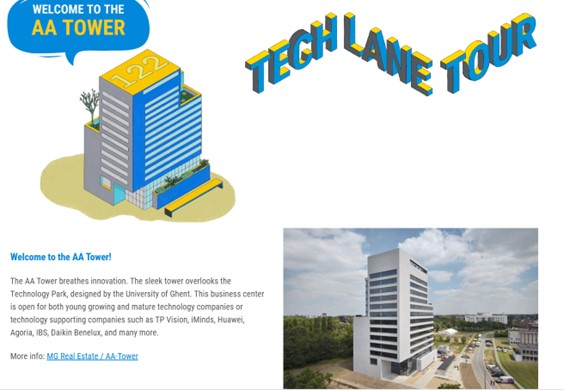
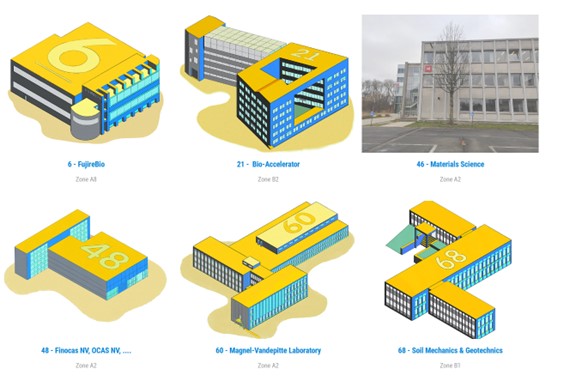
Documentation
Logo
Logo Tech Lane Ghent Science Park - pdf
Logo Tech Lane Ghent Science Park - png
Logo Tech Lane Ghent Science Park - jpg
Rules & Regulations
Parkeerreglement: parking regulations at the park.
Werfreglement: do you plan construction works at the park? Inform your contractor by handing him this document.
'Omgevingsvergunning' at TLGSP: For which works do you apply for an environmental permit ('Omgevingsvergunning') at TLGSP Campus Ardoyen?
Emergency services intervention plan: How do emergency services gain access to the park during interventions?
Documentation - Mobility
Commuting tailored to your business
Presentations Mobi Day 14th October 2025:
Lectures Mobi Day: Cyclobility
Lectures Mobi Day: Indigo
Lectures Mobi Day: Impact commuting on health.
Lectures Mobi Day: CargoVelo
